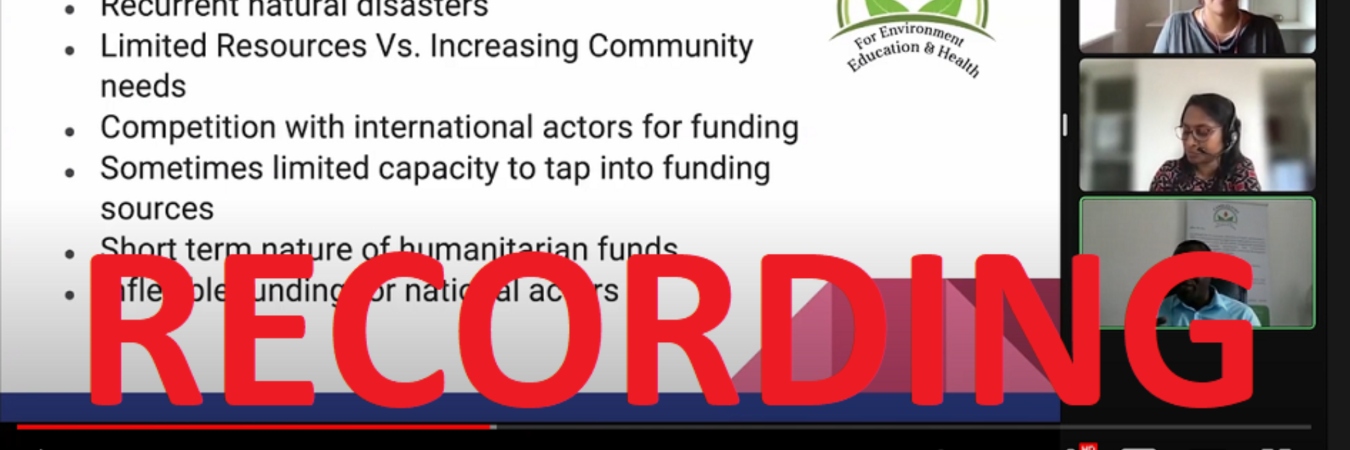
Now available ̶ Recording of Webinar on Embracing the leadership of local actors and communities in climate action
Access the audio and video recordings of the ICVA and PHAP webinar exploring Commitment #3 of the Climate and Environment Charter
On 17 March, PHAP together with ICVA organized a webinar as part of the Learning Stream on Climate Change and Humanitarian Action, exploring Commitment #3 of the Climate and Environment Charter. Commitment #3 aims to embrace the leadership of local actors and communities by learning from traditional and indigenous knowledge on mitigation and adaptation measures, including nature-based solutions.
The event began with a presentation from Nsala Elie Tshikuna, Communication Coordinator at the Refugee Child’s Coalition for Climate Action in Zimbabwe, who covered the impact of climate change and environmental degradation on refugees. He offered contextual insights on how their refugee-led organization and the wider refugee community contributes to climate action. Providing their perspective as a national NGO, Elijah Mulumba, Programme Manager at Candlelight for Environment, Education & Health in Somaliland described how Candlelight’s programming integrates climate and environmental preservation.
Jessica Novia, Community-led Innovation Partnership (CLIP) Project Manager, YAKKUM Emergency Unit in Indonesia, spoke on how they are working with support from international actors to develop and scale various innovations through partnerships with local innovators in the fight against climate change and environmental degradation. Mayfourth D. Luneta, Deputy Executive Director at the Centre for Disaster Preparedness (CDP), Philippines, shared with participants on their work promoting a culture of innovation, community-led innovation, and embracing the leadership of local actors and communities in climate action.
As part of ICVA's and PHAP's Learning Stream on Climate Change and Humanitarian Action, this event followed the launch event of the series that introduced the Charter, the first session of the webinar that examined adapting to the impacts of the climate and environmental crises, the second session on maximizing the environmental sustainability of humanitarian work, and the third session explored practical tools and initiatives undertaken by organizations in reducing their environmental impact.
During this interactive event, participants were encouraged to provide their input in various polls. You can find the results of these, together with the video and audio podcast format recordings of the discussion on the event page.
Access the recordings